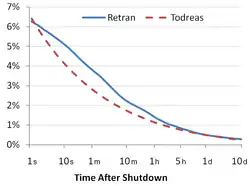Portal:Energy
| Main page | New articles & Tasks |
 The Energy Portal Welcome to Wikipedia's Energy portal, your gateway to energy. This portal is aimed at giving you access to all energy related topics in all of its forms. |
Page contents: Selected article • Selected image • Selected biography • Did you know? • General images • Quotations • Related portals • Wikiprojects • Major topics • Categories • Help • Associated Wikimedia |
Introduction
.jpg.webp) |
In physics, energy (from Ancient Greek ἐνέργεια (enérgeia) 'activity') is the quantitative property that is transferred to a body or to a physical system, recognizable in the performance of work and in the form of heat and light. Energy is a conserved quantity—the law of conservation of energy states that energy can be converted in form, but not created or destroyed. The unit of measurement for energy in the International System of Units (SI) is the joule (J).
Common forms of energy include the kinetic energy of a moving object, the potential energy stored by an object (for instance due to its position in a field), the elastic energy stored in a solid object, chemical energy associated with chemical reactions, the radiant energy carried by electromagnetic radiation, and the internal energy contained within a thermodynamic system. All living organisms constantly take in and release energy.
Due to mass–energy equivalence, any object that has mass when stationary (called rest mass) also has an equivalent amount of energy whose form is called rest energy, and any additional energy (of any form) acquired by the object above that rest energy will increase the object's total mass just as it increases its total energy.
Human civilization requires energy to function, which it gets from energy resources such as fossil fuels, nuclear fuel, or renewable energy. The Earth's climate and ecosystems processes are driven by the energy the planet receives from the Sun (although a small amount is also contributed by geothermal energy). (Full article...)
Selected article
As farmers worldwide respond to higher crop prices in order to maintain the global food supply-and-demand balance, pristine lands are cleared to replace the food crops that were diverted elsewhere to biofuels' production. Because natural lands, such as rainforests and grasslands, store carbon in their soil and biomass as plants grow each year, clearance of wilderness for new farms translates to a net increase in greenhouse gas emissions. Due to this off-site change in the carbon stock of the soil and the biomass, indirect land use change has consequences in the greenhouse gas (GHG) balance of a biofuel. (Full article...)
Selected image

Photo credit: Charliebrown7034
Skyglow over New York City, one form of light pollution.
Did you know?
- Samuel Andrews (1836–1904) was an English-born chemist and inventor whose request for investment capital to build an oil refinery in 1862 led to a partnership with John D. Rockefeller and the formation of the Standard Oil companies?
- Golar Spirit (pictured) is the world's first floating storage and regasification vessel converted from a LNG carrier?
- The Rockies Express Pipeline, currently under construction, will be one of the largest natural gas pipelines ever built in North America?
- Syncrude Canada Ltd. is the world's largest producer of synthetic crude oil from oil sands?
- During World War II, Australia produced almost 500,000 barrels of shale oil by operating the Nevada–Texas–Utah type of oil-shale retorts?
- The Sangtuda 1 Hydroelectric Power Plant is expected to provide up to 12% of the total energy output of Tajikistan?
Selected biography

Rockefeller founded the Standard Oil Company in 1870 and ran it until he retired in the late 1890s. He continued to retain his stock and his title as president until 1911, when the company was broken up for carrying out illegal monopoly practices. The new companies formed included the predecessors of Conoco, Amoco, Chevron, Esso, Mobil and Sohio. Rockefeller, who had rarely sold shares, owned stock in all of them. As gasoline had grown in importance his wealth had soared and he became the world's richest man and the first billionaire.
Rockefeller's fortune was used to create the modern systematic approach of targeted philanthropy with foundations that had a major impact on medicine, education, and scientific research. His foundations pioneered the development of medical research, and was instrumental in the eradication of hookworm and yellow fever. At his death, at the age of 98, Rockefeller's remaining fortune was estimated at $1.4 billion. As a percentage of the United States economy, no other American fortune has ever come close.
General images
Quotations
- "In recent years, new nations have entered enthusiastically into industrial production, thereby increasing their energy needs. This has led to an unprecedented race for available resources. Meanwhile, some parts of the planet remain backward and development is effectively blocked, partly because of the rise in energy prices. What will happen to those peoples?" – Pope Benedict XVI, 2007
- "In order to prevent the harmful consequences that crude oil price volatility is having on the well-being of our people, it is urgent that we convene a World Leaders Summit to present alternative solutions to this serious problem, which could quite possibly be a significant shock to the prosperity of developing nations." – Leonel Fernández, 2005
Related portals
WikiProjects
WikiProjects connected with energy:
- WikiProject Energy
- Oil megaprojects task force
Other WikiProjects that may be of interest:
- WikiProject Environment
- WikiProject Technology
- WikiProject Biography
Major topics
Major categories
National energy supply, use & conservation
- Energy by country
National electricity sector
- Electric power by country
Politics, economics, environment
- Climate change
- Energy conservation
- Energy economics
- Energy crises
- Energy development
- Energy policy
- Peak oil
Energy sources
- Fuels
- Biofuels
- Fossil fuels
- Fusion power
- Nuclear technology
- Renewable energy
- Energy conversion
- Electric power
- Energy storage
Energy-related design
- Electric vehicles
- Hybrid vehicles
- Low-energy building
- Solar design
Scientific usage
- Heat transfer
- Thermodynamics
- Units of energy
Category browser
Help
Puzzled by energy?
Can't answer your question?
Don't understand the answer?
- Ask at the reference desk
- Read the Wikipedia help pages
For further ideas, to leave a comment, or to learn how you can help improve and update this portal, see the talk page.
Associated Wikimedia
The following Wikimedia Foundation sister projects provide more on this subject:
-
 Commons
Commons
Free media repository -
 Wikibooks
Wikibooks
Free textbooks and manuals -
 Wikidata
Wikidata
Free knowledge base -
 Wikinews
Wikinews
Free-content news -
 Wikiquote
Wikiquote
Collection of quotations -
 Wikisource
Wikisource
Free-content library -
 Wikiversity
Wikiversity
Free learning tools -
 Wiktionary
Wiktionary
Dictionary and thesaurus
-
 List of all portalsList of all portals
List of all portalsList of all portals -
 The arts portal
The arts portal -
 Biography portal
Biography portal -
 Current events portal
Current events portal -
 Geography portal
Geography portal -
 History portal
History portal -
 Mathematics portal
Mathematics portal -
 Science portal
Science portal -
 Society portal
Society portal -
 Technology portal
Technology portal -
 Random portalRandom portal
Random portalRandom portal -
 WikiProject PortalsWikiProject Portals
WikiProject PortalsWikiProject Portals

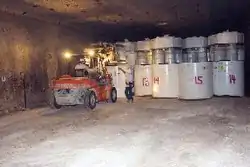






_conducts_a_fueling_at_sea_(FAS)_with_the_Nimitz-class_aircraft_carrier_USS_George_Washington_(CVN_73).jpg.webp)
































.jpg.webp)









.jpg.webp)







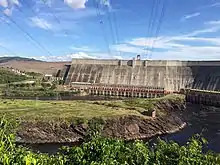




.jpg.webp)















.svg.png.webp)



















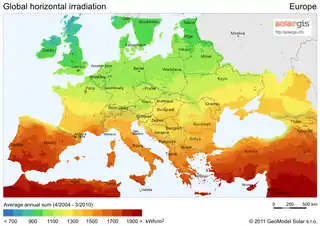






.jpg.webp)
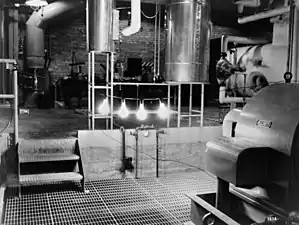





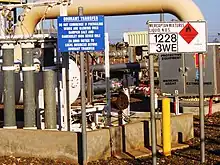


.svg.png.webp)





.jpg.webp)






